THE fabulous 1950s delivered more Bollywood movie icons than any other decade is why it’s regarded as the golden age of Hindi cinema.
When leading ladies from that era are mentioned, names like Nargis, Meena Kumari, Madbubala, Waheeda Rehman, Geeta Bali and Vyjayanthimala come to mind, but another who made a big impact and is often unfairly overlooked is Nalini Jaywant.
The actress, who emerged before all these female legends, combined beauty and a striking presence with a technically brilliant performance ability, opposite the biggest leading men, in high-profile films. Despite reaching great heights, she passed away on December 22, 2010, aged 84, after an impactful life that ended in tragic solitude.
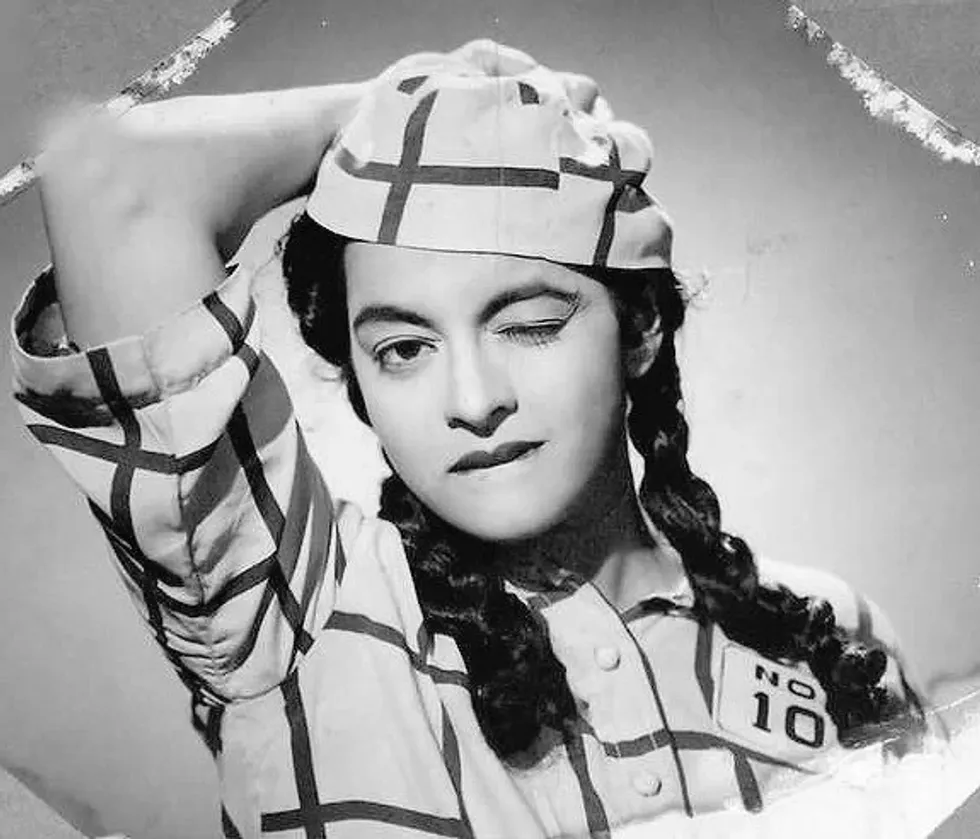
Eastern Eye decided to mark her death anniversary this month by telling the story of an unsung hero of Indian cinema.
Nalini Jaywant was born in Mumbai on February 18, 1926, into a strict household as the daughter of a customs officer. Her paternal aunt was famed singer and actress Rattan Bai, the greatgrandmother of current star Kajol. After her husband died, Rattan Bai and her teenage daughter Sarojini moved in with the Jaywants. When Sarojini expressed a desire to pursue acting, Jaywant’s father objected, which led to the mother and daughter moving out.
Sarojini was rechristened as Shobhana Samarth and successfully launched into films. She would become a huge star, as would her own daughters Nutan and Tanuja. Despite Shobhana’s success, Nalini’s father wasn’t happy with her.
Meanwhile Nalini was forbidden from following in their footsteps. But then one day when the 14-year-old was at her aunt’s house for the birthday of Nutan, she was introduced to producer Chiman Bhai Desai. He immediately saw star potential and wanted to launch the teenager as a heroine, but her father objected.
Chiman persisted and persuaded the father to let Nalini act in his movie Radhika (1941). The movie was directed by Chiman’s son Virendra Desai. The multitalented youngster would also sing multiple songs in the successful movie. She quickly followed them up with films like Bahen (1941), Nirdosh (1941) and Aankh Michauli (1942), which slowly established the young sensation as Bollywood’s brightest new star.
In 1945, the teenager married her debut film director Virendra Desai, who was much older and had children already. The marriage led to the filmmaker being disowned by his family and ousted from their studio. Nalini, with her fired husband, signed a contract with the newly established Filmi stan studio. Despite being paid a monthly salary, neither the actress nor her husband was given a project for two years. There was speculation that the studio wanted all the attention on their headline star Naseem, who was the heroine of their launch film Chal Chal Re Naujawan (1944). Nalini had made the added mistake of insisting that her husband direct films she starred in. They separated three years later, and he passed away soon after. Nalini’s career was now back on track with the film Anokha Pyar (1948) opposite new red hot star Dilip Kumar.
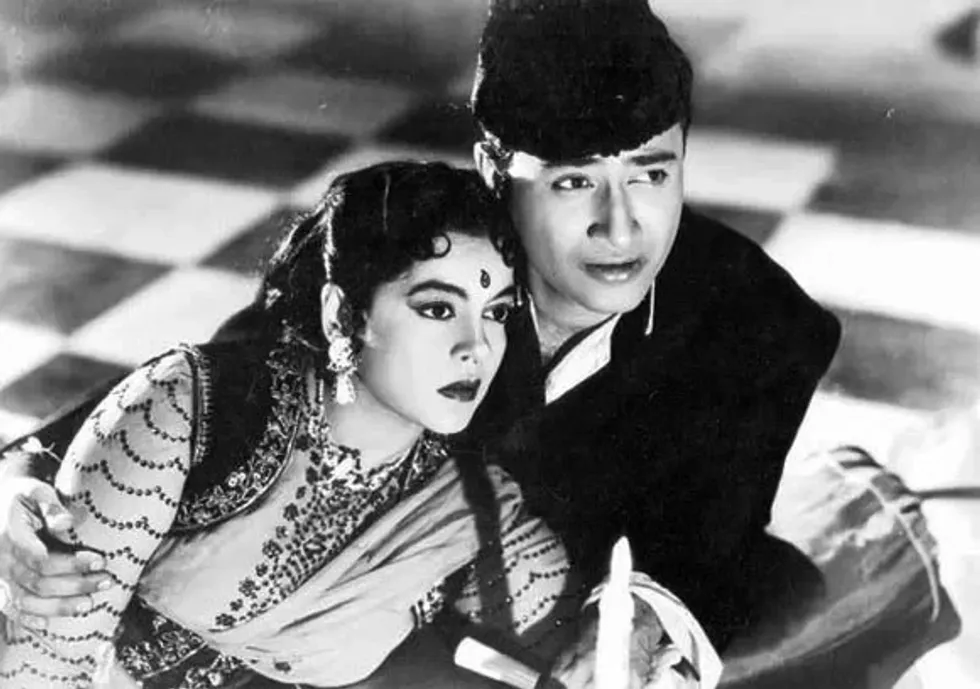
The big turning point came in 1950 with Samadhi, opposite established actor Ashok Kumar, which became the year’s biggest hit. This would start a dream run of movies for Nalini with Hindi cinema’s first male superstar, including Sangram, which was released the same year. They would star opposite each other in films like Jalpari (1952), Kafila (1952), Nau Bahar (1952), Saloni (1952), Lakeeren (1954), Sheroo (1957) and Mr. X (1957), which was one of Bollywood’s first science fiction films. Their film Naaz (1954) was the first from Bollywood to be shot outside India, in Cairo and London.
Ashok Kumar was her favourite costar and she said: “In both Samadhi and Sangram, he stole the show with his effortless performance. His assets were his expressive eyes, which he used well with his body language.
” They would fall deeply in love and start a passionate affair, but Ashok was unwilling to leave his deeply devoted wife, who had been a major reason for him getting his big break in the 1930s. Nalini was left heartbroken when that relationship ended, and Ashok carried the guilt of his extra-marital affair right until his passing in 2001.
She starred opposite the biggest leading men like Dilip Kumar and Dev Anand, winning her only major acting award for the 1958 thriller Kala Pani.
Future legend Sunil Dutt would make his debut opposite her in Railway Platform (1955), before his star-making role in Oscar nominated film Mother India (1957) two years later. Despite being a better actress, she was overlooked for many of the iconic movies because the leading ladies were involved with the major filmmakers or lead stars behind those movies.
The actress starred in Amar Rahe Yeh Pyar (1961), which was a powerful partition set drama ahead of its time, but it unexpectedly failed at the box office.
This led to the movie’s writer and producer, Radha Kishan committing suicide because he had racked up so many debts. The actress dramatically cut down on movies after that incident and only featured in a few more before her final outing as a lead in Bombay Racecourse (1965). She had also married actor Prabhu Dayal in 1960 and stepped away from the spotlight.
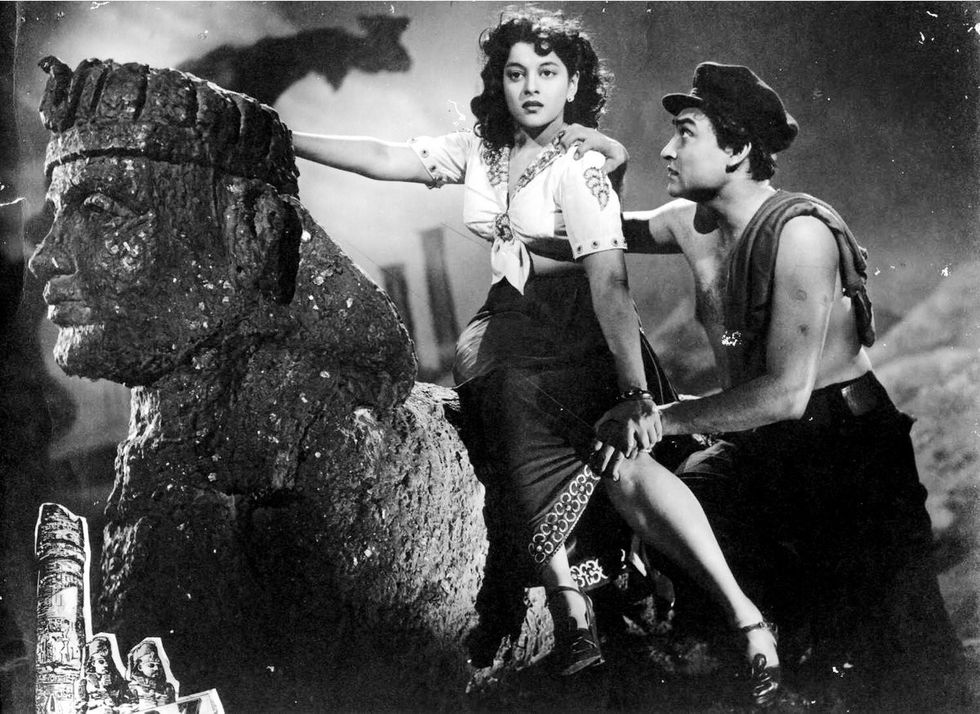
The actress was persuaded to come out of retirement to play reigning superstar Amitabh Bachchan’s mother in Nastik (1983), which coincidentally had the same title as a 1954 movie she acted in.
Even though the movie was a box office success, the no-nonsense actress greatly regretted signing it and felt she had been cheated by producers with her insubstantial role. She had said: “This was a blunder to accept that film as whatever I was narrated about the role, all turned out to be false on screen. This was none less than a shock for me. Therefore, I decided never to look back to the film world.”
Despite being approached for further projects, Nalini was so badly hurt by the experience that she never acted in a movie again and chose to live a quiet life.
When her husband died in 2001, she never fully recovered from the heartache.
She gradually withdrew from the world outside and stopped meeting people. When she finally passed away from a heart attack, no one had noticed for three days and neighbours were only alerted by the constant barking of her pet dogs that something bad had happened.
A distant relative carried out the funeral rites and ended the story of one of the most influential stars in Hindi cinema history, who inspired some of the greatest leading ladies of all time with her acting, style and onscreen swagger.
When Bollywood’s greatest ever actor Dilip Kumar was asked who his favourite co-star was, he said: “I have consistently rated Nalini Jaywant as a formidable costar. She was the only actress who could take me by surprise in the final take, if I was not alert enough, thanks to the natural spontaneity he possessed.”
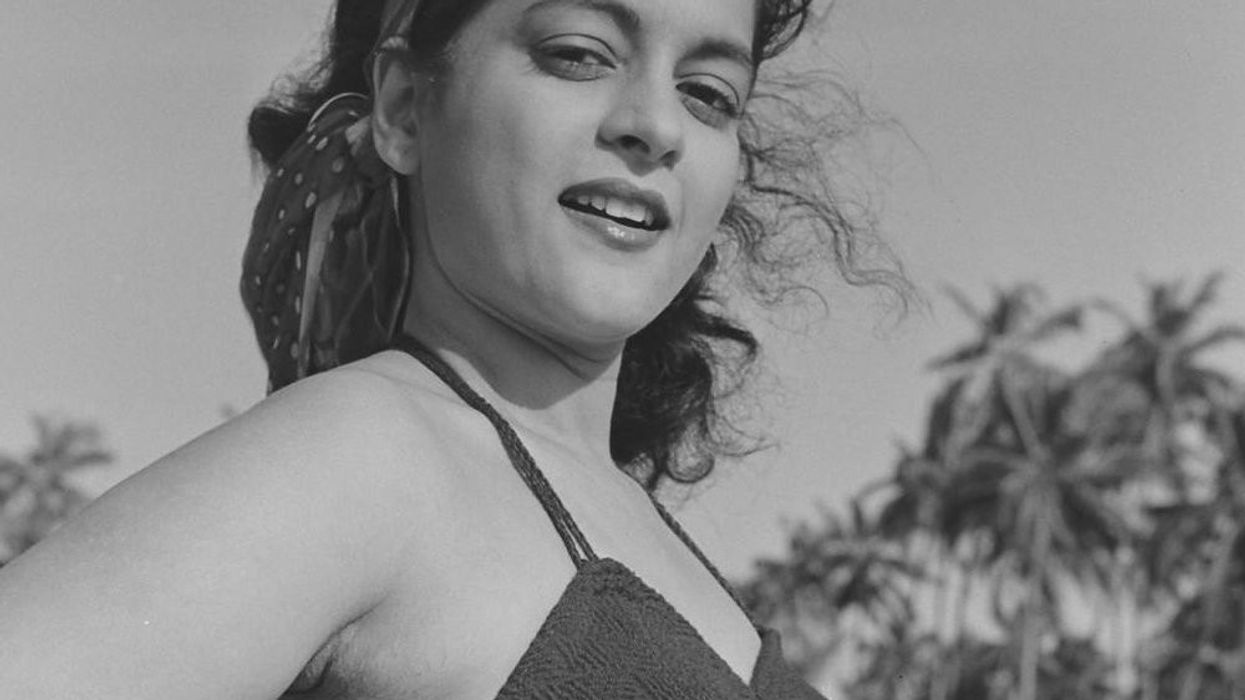




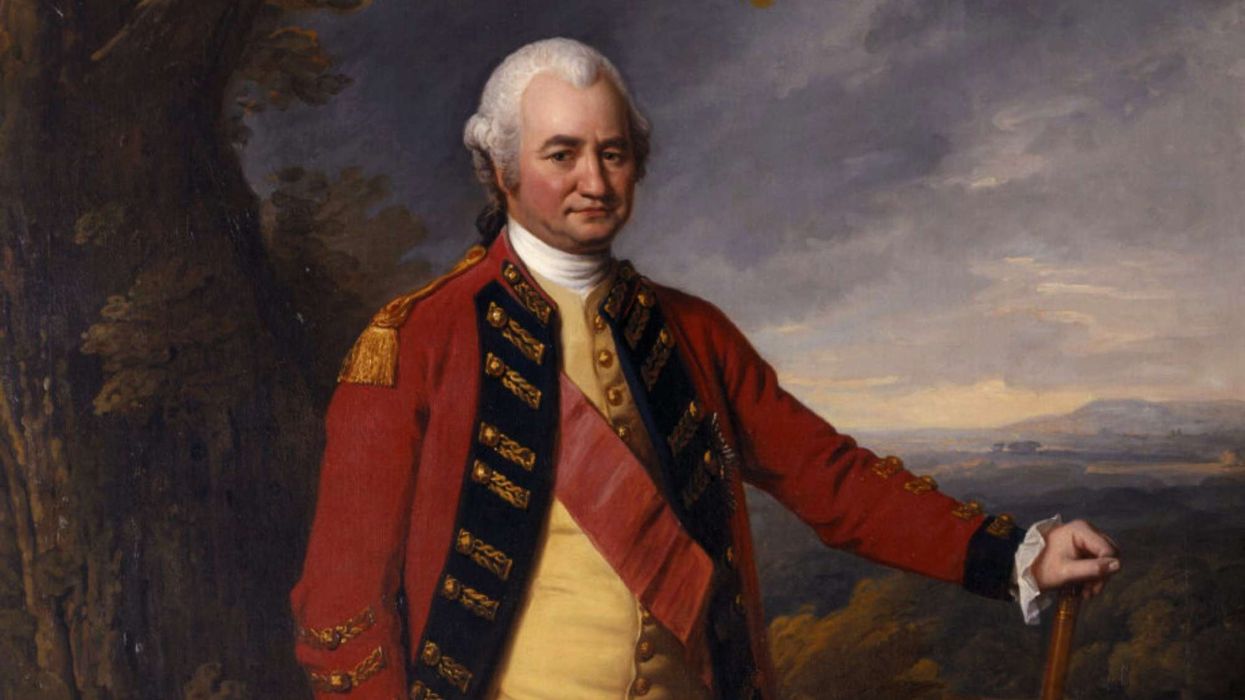
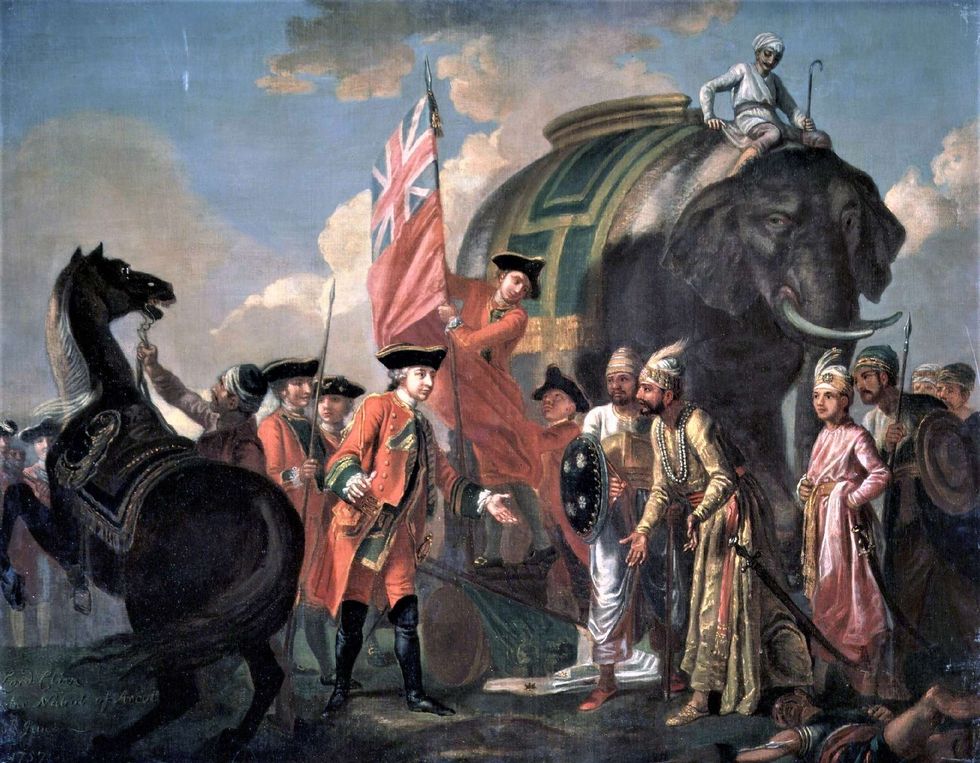 Clive meeting Mir Jafar after the Battle of Plassey 1757
Clive meeting Mir Jafar after the Battle of Plassey 1757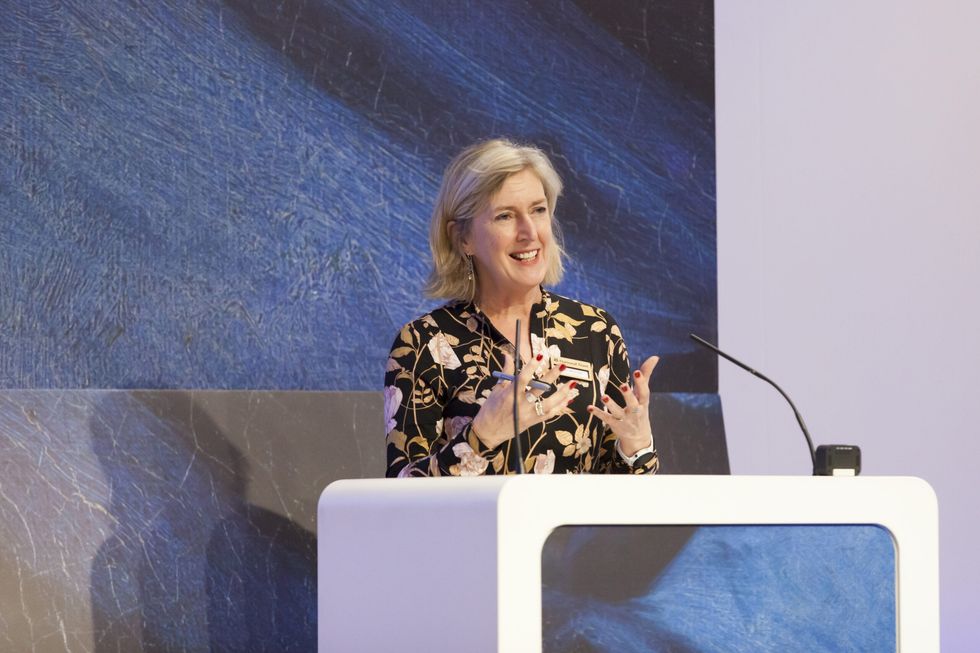 National Trust director general Hilary McGrady
National Trust director general Hilary McGrady 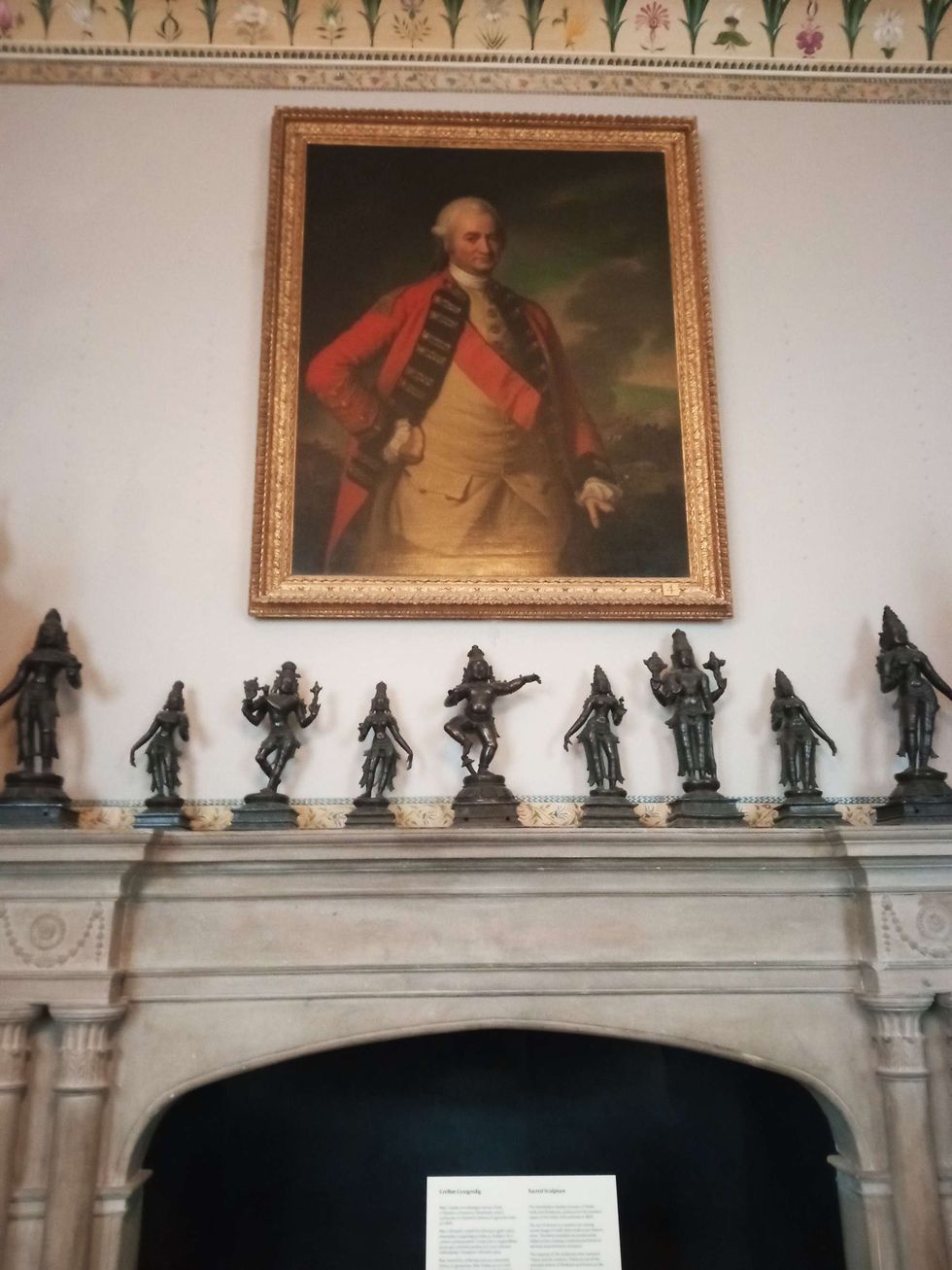 Powis Castle photo of four Clive dominates Hindu Gods
Powis Castle photo of four Clive dominates Hindu Gods  Clive of India at Foreign Office entrance
Clive of India at Foreign Office entrance 





